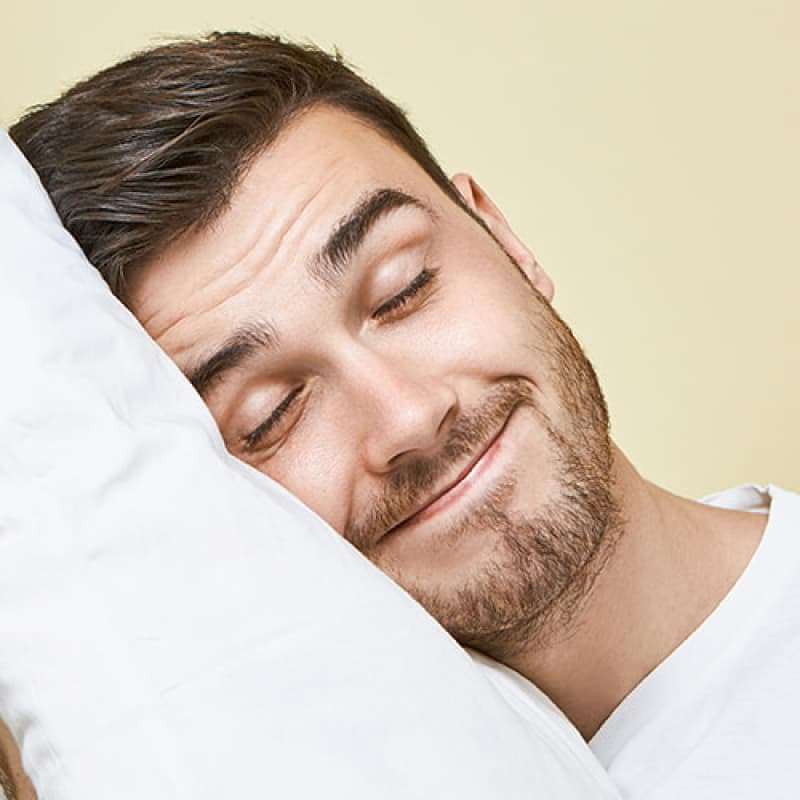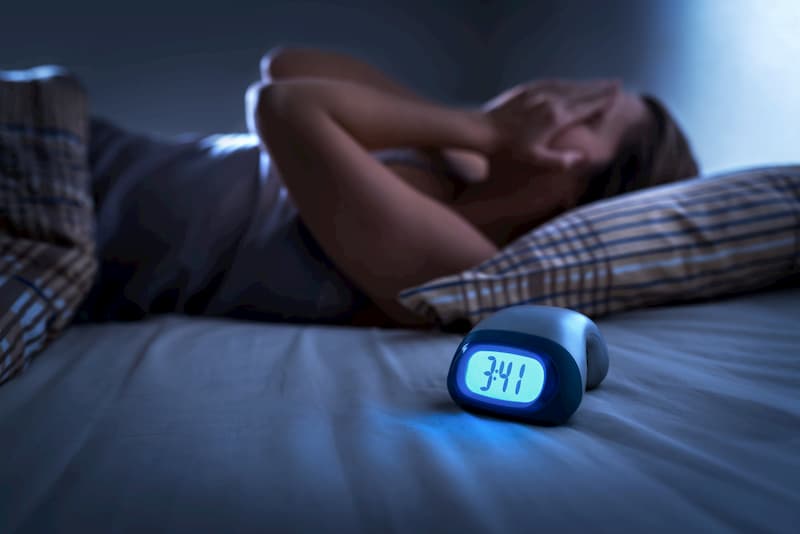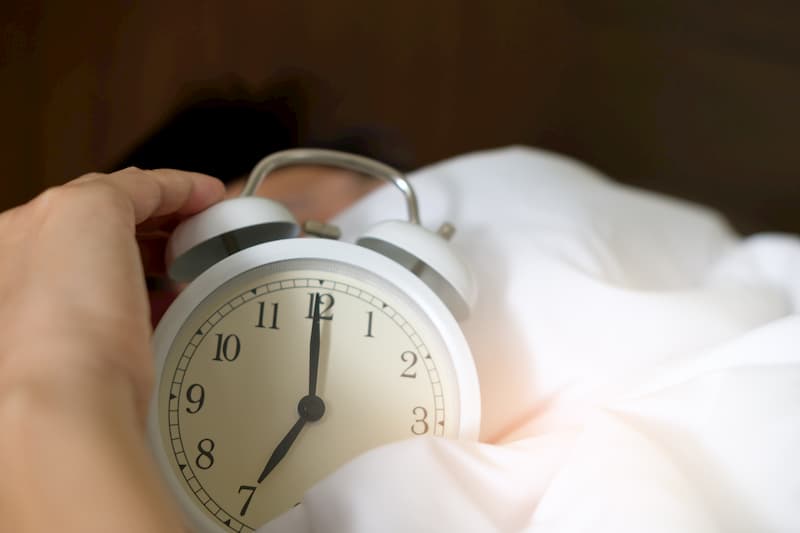
When Counting Sheep Just Isn’t Enough!
We spend roughly one-third of our lives asleep. It’s a function that is as necessary for our health as food and water. Yet getting those recommended 8 hours a night doesn’t always come easy. We’ve all had that experience: lying for hours wide awake in a darkened room, tossing and turning. For some people sleep problems aren’t just occasional irritations, they’re frequent. Being sleep deprived can make completing even simple tasks a real struggle. But it isn’t just difficult to deal with, it can be dangerous. For example, driving while sleep deprived can be as bad as drunk driving [1], with exhaustion on the road being one the primary causes of car accidents [2]. It goes without saying then that a lack of sleep can become a severe health issue, mental and physical.
So what can be done to help if you’re suffering from insomnia? One option is medication: Sleeping pills. But are they actually effective, or they are simply placebo? Furthermore, is it true that sleeping pills can actually be dangerous? Let’s take a look at the common sleep aid tablet Diphenhydramine Hydrochloride, better known by the brand name Nytol, and answer some of the more common questions regarding the medication. If you’re looking for alternative ways to sleep better, we have put together a list of the top 5 plants to help you sleep better.

What Is A Diphenhydramine Sleep Aid Tablet & How Do They Work?
Diphenhydramine sleep aids are actually an antihistamine medicine. If you’ve ever been treated for hay fever, you’ll probably recognise the word antihistamine: it’s a kind of medication that is used to reduce our bodies overactive allergic response to harmless objects such as pollen or dust. Histamine is the substance in our body that triggers a response to infections and allergens, but this can sometimes happen when there is no real threat. The histamine response can cause all sorts of familiar symptoms: inflammation, mucus production, itching. It’s no fun, as any hay fever sufferer will let you know (for more information on managing hay fever, check out these 6 Hay Fever Home Remedies To Help This Spring). So medications called antihistamines were developed in order to block the effects of histamines, preventing the allergic response. Some common antihistamine treatments include Fexofenadine, also under the branded name Telfast.
What does this have to do with sleeping pills? Well, one of the primary side effects of some antihistamines is drowsiness. This is not always the desired side effect when it comes to treating hay fever, but it makes for an effective sleep aid. Diphenhydramine is one of these drowsy or sedative antihistamines, so it’s also sold and prescribed as a sleep aid tablet, sometimes intended to assist with coughs or colds that keep you awake at night (in this case it may be sold mixed with other medication such as Paracetamol tablets 500mg strength).
How Do I Take Diphenhydramine Sleep Aid Tablet & How Quickly Does It Work?
The prescribed dosage of Diphenhydramine will vary according to its usage, but as a sleep aid you’ll typically be taking 50mg before bed or 25mg if you’re over 65. Our Pharmacists usually advise to start off at the 25mg dose regardless, just to see how you get on. Take it 20 minutes before bedtime with a glass of water, swallowing whole. You should be noticeably drowsier within half an hour of taking the sleep aid tablet, and it should remain effective for up to 8 hours.
Obviously, this medication is meant to help you sleep, which is why it should only be taken before your usual bedtime. Diphenhydramine sleep aid tablets should not be used during the day, when the effects of the medication could impair activities such as driving or operating machinery. You’re also only meant to be taking one dose per night – anything more than that is potentially dangerous.
How Long Should I Be Taking Diphenhydramine Sleep Aid Tablets?
Generally, Diphenhydramine sleep aid tablets are prescribed to alleviate temporary sleeping problems over the course of a week or so. They’re not intended as a lifelong solution for insomnia – in fact, you shouldn’t be taking Diphenhydramine daily for more than 5 days. This is because your body adjusts to the medicine after a fortnight of continued use, and so the tablets become less and less effective.
There is also a possibility of addiction if the tablets are abused. This is why you should only take Diphenhydramine tablets to help you sleep in the short term, for no more than a couple of weeks. If you are experiencing difficulty in falling asleep for 2 weeks or more, it is important to let your doctor know.
Do Diphenhydramine Sleep Aid Tablets Have Side Effects & What Happens If I Take Too Much?
The primary side effect of drowsy antihistamines is that they make you … well, drowsy! But it’s not the only effect they can have on your body. As with any medication, there is potential for other side effects, and Diphenhydramine sleep aid tablets are no different.
These Diphenhydramine sleep aid tablets side effects occur in more 1 in a 100 people:
- Drowsiness during the day (if the effects of the tablet haven’t worn off yet)
- Dry mouth
- Temporary sensations of dizziness or being unsteady on your feet
- Increased sensitivity to sunlight and susceptibility to rashes
Most of these are mild and infrequent side effects, but if you take too many Diphenhydramine sleep aid tablets you could experience:
- Intense and prolonged drowsiness
- Nausea
- Blurred vision
- A fast or irregular heart beat
If you’ve taken more than your prescribed dose and / or experience any of these side effects, seek medical help.
Can I Take Diphenhydramine Sleep Aid Tablets?
If you’re above 16, you can most likely take Diphenhydramine tablets as a sleep aid. But there are some people who should avoid taking this medication, or should consult their doctor, pharmacist or prescriber before taking it.
Diphenhydramine may not be suitable for you if:
- You’ve had an allergic reaction to the medication or similar antihistamines in the past
- You have lung problems including asthma and COPD
- You have kidney or liver problems
- You have a stomach ulcer or a blockage in your stomach
- You have epilepsy or experience seizures
- You have Primary Angle Closure Glaucoma
- You have problems urinating or emptying your bladder
- You have an intolerance or are unable to absorb lactose or sorbitol sugars
Diphenhydramine sleep aid tablets are NOT recommended for pregnant women. If you’re a pregnant woman and looking for sleep aid medication, you may be prescribed a different antihistamine such as Promethazine.
Combinations To Avoid
Some medications just shouldn’t be combined. Diphenhydramine sleep aid tablets are safe to take with most medications, but as with any medicine there are combinations you should be cautious about.
Check with your doctor, pharmacist or prescriber before taking Diphenhydramine sleep aid tablets with any of the following:
- Any medications with side effects of drowsiness, dry mouth or dizziness, as this may compound the side effects of Diphenhydramine
- The heart medicine Metoprolol
- Antidepressants such as Venlafaxine and MAOI Inhibitors like Phenelzine
Sometimes Diphenhydramine sleep aid products, particularly those marketed for cold and coughs, can contain other medicines such as Paracetamol. So you should always check the list of ingredients before taking them.
It’s not just other medication you should be wary of. One of the most dangerous combinations is sleep aids and alcohol. Drinking alcohol alongside sleep aids intensifies the sedative effects of both substances, resulting in a sleep that can cause respiratory problems and is hard to wake from. So never combine Diphenhydramine sleep aid tablets and alcohol, as you could be risking your life.
Caffeinated drinks aren’t dangerous to combine with sleep aids, but they do tend to counteract the intended use of the medication. So try to avoid teas, coffees and energy drinks if you want your Diphenhydramine tablets to work effectively.

More Information About Sleep Aid Tablets
We’ve touched on the potential side effects of Diphenhydramine sleep aid tablets, as well what could happen if you take too much, conditions that may prevent you from taking them, and combinations you should avoid. If you’d like to read a more comprehensive list of side effects, warnings and precautions, make sure to check the Diphenhydramine Hydrochloride 50mg Tablet Patient Information Leaflet (it will be packaged with your medication) [3].
So, Are Diphenhydramine Sleep Aid Tablets Safe And Effective?
Yes, they usually are effective and occasionally used by many across the UK. Despite all the warnings and precautions listed, for the vast majority of people Diphenhydramine sleep aid tablets effectively help you sleep. As long as you follow the instructions as prescribed, such as taking the correct dosage at the correct time, they can really help combat insomnia and those irritating coughs that wake you up at night. We all know how much of a difference a good night’s sleep can make, so these sleep aids can really improve your daily health if you’re struggling to get some good shut eye.
Diphenhydramine Hydrochloride Tablets are available at e-Surgery from as little as £4.95, delivered quickly and conveniently straight to your front door in discreet, recyclable packaging – no need to go outside to the local pharmacy!
Other Ways To Get a Good Night’s Sleep
In addition to sleep aid tablets, simple lifestyle changes can really make a difference to the quality and quantity of our sleep [4].
You could try:
- Sticking to a set sleep schedule.
- Create a relaxing environment for sleep in your bedroom.
- Avoid last night distractions such as gaming or social media.
- Exercise during the day.
- Avoid drinking large amounts of caffeine.
Sources
- Drowsy Driving vs. Drunk Driving: How Similar Are They? | SleepFoundation.org
- The Effects of Sleep Loss on Young Drivers’ Performance: A Systematic Review | PubMed
- Diphenhydramine Hydrochloride Patient Information | Med Line Plus
- 10 Tips to Beat Insomnia | NHS Live Well
Further Reading
- Diphenhydramine | NHS
- Sleeping Tablets | PatientInfo
- 17 Proven Tips To Sleep Better At Night | healthline
- Diphenhydramine Uses, Dosage & Side Effects | Drugs.com








